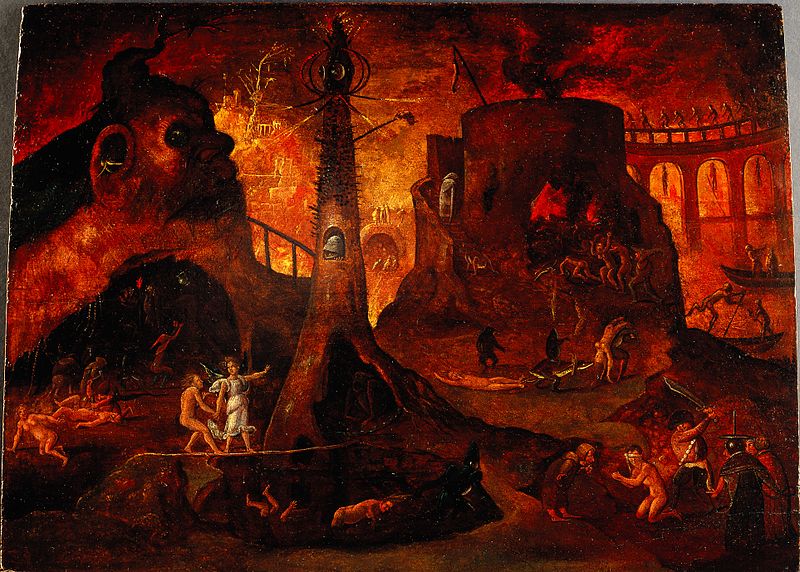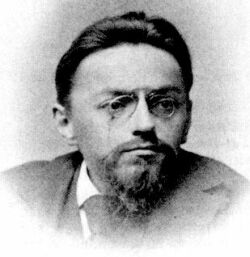A poem by Susan Thorpe:
Bells tolled,
Abbot spoke.
Wooed Abbess.
Abbey woke!
The letters in each word appear in either alphabetical or reverse alphabetical order.
(Susan Thorpe, “Alphomes,” Word Ways 28:3 [August 1995], 136-139.)
A poem by Susan Thorpe:
Bells tolled,
Abbot spoke.
Wooed Abbess.
Abbey woke!
The letters in each word appear in either alphabetical or reverse alphabetical order.
(Susan Thorpe, “Alphomes,” Word Ways 28:3 [August 1995], 136-139.)
“A Brief and Somewhat Ungracious Exchange Between the British Ambassador’s Wife, Who Speaks No Spanish, and the Spanish Ambassador’s Wife, Who Speaks No English, During a Courtesy Call by the Latter Upon the Former: Written on the Assumption That My Readers Know the Sound of the Spanish Word for ‘Yes'”
“T?”
“C.”
— Willard R. Espy
ONE + TWO – THREE – FOUR + FIVE = 1
That’s true if we replace each word either with the number it denotes or with the quantity of its letters: Either way we’re left with 1. Another:
ONE + TWO – THREE – FOUR + FIVE – SIX + SEVEN + EIGHT + NINE – TEN + ELEVEN + TWELVE – THIRTEEN – FOURTEEN = 5
These are the only two such sequences using 20 or fewer consecutive number names, found Leonard Gordon, although other sequences of plus and minus signs are possible.
In a separate but related project, Gordon assigned the number names ONE through FIFTEEN, ONE through NINETEEN, and ONE through TWENTY to either side of an equals sign so that the denoted equation is mathematically correct and each equation “balances,” with the same number of letters on each side:
ONE + FOUR + SEVEN + TEN + ELEVEN + THIRTEEN + FOURTEEN = TWO + THREE + FIVE + SIX + EIGHT + NINE + TWELVE + FIFTEEN
ONE + THREE + FIVE + SEVEN + NINE + SIXTEEN + SEVENTEEN + EIGHTEEN + NINETEEN = TWO + FOUR + SIX + EIGHT + TEN + ELEVEN + TWELVE + THIRTEEN + FOURTEEN + FIFTEEN
ONE + THREE + SIX + NINE + TEN + TWELVE + THIRTEEN + FIFTEEN + SEVENTEEN + NINETEEN = TWO + FOUR + FIVE + SEVEN + EIGHT + ELEVEN + FOURTEEN + SIXTEEN + EIGHTEEN + TWENTY
(“Self-Referential Sums Revisited,” in “Kickshaws,” Word Ways 28:3 [August 1995], 170-180.)

In September 2008, Mike Nolan, head of web services at Edge Hill University in Ormskirk, England, noticed something strange on Google Maps. “I grew up in the area and spotted on the map one day that it said ‘Argleton’,” he told the Guardian. “But it’s just a farmer’s field close to the village hall and playing fields. I think a footpath goes across the field, but that’s all.”
Bloggers began to discuss the nonexistent town, which found its way into other services that used Google’s data: Employment agencies, weather services, and letting agents began to cite Argleton in their listings, reassigning real people and businesses to the phantom settlement because of its claimed location.
Was it a joke? A placeholder? A misspelling? Whatever it was, it had disappeared again by May 2010. Google would say only that it experiences “occasional errors” and that it gets its mapping information from a Dutch company called Tele Atlas (whose spokesperson would add only, “I really can’t explain why these anomalies get into our database”).
Danny Dorling, president of the Society of Cartographers, said, “I would bet that this is an innocent mistake. In other words, it was not intentionally inserted to catch out anyone infringing the map’s copyright, as some are saying. But the bottom line is that we don’t know what mapping companies do to protect their maps or to hide secret locations, as some are obligated to do.”

In the College Mathematics Journal in 2001, Rick Mabry published this “proof without words” that
He gives a charming explanation here.
(Rick Mabry, “Mathematics Without Words,” College Mathematics Journal 32:1 [January 2001], 19.)

[A]ccording to the standard traditions, being in hell is the worst thing that could ever happen to anyone. As with less horrendous evils, the first question is how such an evil is, or could be, justified. The theological portrayals of hell make this question the most difficult for the theist to address. Ordinary pain and evil, it may be thought, can be accounted for if events in the future ‘make up for’ what leads to them, but the evil of hell leads nowhere; at no point in the future will something of value make up for the evil of hell or will some reward be granted to those who endure the suffering of hell. Hell is apparently paradigmatic as an example of truly pointless, gratuitous evil. Thus arises the problem of hell.
— Jonathan L. Kvanvig, The Problem of Hell, 1993

In 1921 Charles Steinmetz, “the electrical wizard of Schenectady,” described the conveniences of 2021:
When heating is all done electrically, and I want 70 degrees in my home, I shall set the thermostat at 70 and the temperature will not rise above that point. This temperature will be maintained uniformly regardless of the weather outside.
This will also hold true on the warm day when the temperature outside may be 90 or 100 degrees. The same electrical apparatus will cool the air, and what’s more it will also keep the humidity normal at all times.
“Look back 100 years and it is like jumping into the Dark Ages,” he wrote. “The electrical development is still in its infancy.”
(Via Reddit’s ArchivePorn.)
Edgar Rice Burroughs invented an extensive vocabulary for the Mangani, the great apes of the Tarzan novels:
afraid: utor
baboon: tongani
branch: balu-den
cave: zu-kut
country: pal
elephant: tantor
hair: b’zan
hate: ugla
jackal: ungo
lightning: ara
look: yato
love: gree-ah
mother: kalu
rhinoceros: buto
strong: zu-vo
valley: pele
water: lul
Tarzan supposed that Mangani might be the basis for the language of all creatures, because all the animals of the jungle understood it to some extent. “It sounds to man like growling and barking and grunting, punctuated at times by shrill screams, and it is practically untranslatable to any tongue known to man,” Burroughs wrote in Tarzan at the Earth’s Core.
I’m getting this from David Ullery’s The Tarzan Novels of Edgar Rice Burroughs, but there are many online dictionaries. French writer Jacques Jouet even composed a love poem in the language.
Related: In reading English books Tarzan learned to grasp each word in its entirety, but in speaking them aloud he would spell them using the names he’d invented for the letters, according to Jungle Tales of Tarzan. “Thus it was an imposing word which Tarzan made of GOD. The masculine prefix of the apes is BU, the feminine MU; g Tarzan had named LA, o he pronounced TU, and d was MO. So the word God evolved itself into BULAMUTUMUMO, or, in English, he-g-she-o-she-d.”
In a forum on Testy Copy Editors in 2009, editor Mike O’Connell posted a headline from the newspaper Japan Today: “Violinist Linked to JAL Crash Blossoms.” He asked, “what do you call these kinds of strangely phrased hedlines? is there a word for them?”
The answer suggested itself — a crash blossom is headline that’s painfully ambiguous, usually due to unwise ellipsis, double meaning, or tortured syntax. Linguist Ben Zimmer gave some examples in the New York Times the following year:
Giant Waves Down Queen Mary’s Funnel
MacArthur Flies Back to Front
Eighth Army Push Bottles Up Germans
McDonald’s Fries the Holy Grail for Potato Farmers
British Left Waffles on Falklands
Gator Attacks Puzzle Experts
And the Language Log blog lists examples from time to time:
Infant Pulled From Wrecked Car Involved in Short Police Pursuit
Letter Bombs Accused in Court
Mexico Mine Missing Declared Dead
Queen Mary Having Bottom Scraped
Two Soviet Ships Collide — One Dies
Soviet Virgin Lands Short of Goal
Smoking Riskier Than Thought
Headless Corpse Accused in Court
On Nov. 5, 1996, Election Day in the United States, the New York Times crossword puzzle carried a surprising clue:
39. Lead story in tomorrow’s newspaper (!), with 43A
43 across turned out to be ELECTED, but 39 across might be either CLINTON or BOBDOLE — both possibilities had seven letters. Was the Times venturing to guess the outcome of the day’s election?
No. Composer Jeremiah Farrell had contrived each of the seven down clues to admit of two possible answers, so that no matter which candidate won, the newspaper might claim a “correct” result.
Crossword editor Will Shortz called Farrell’s ambiguous effort his favorite puzzle of all time.
(Thanks, Andrew.)